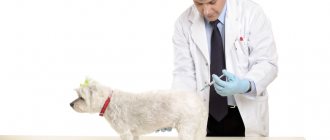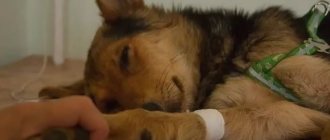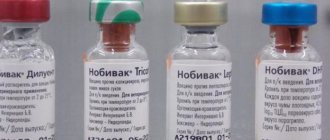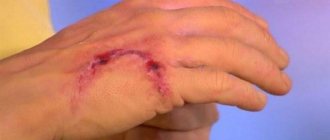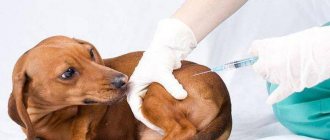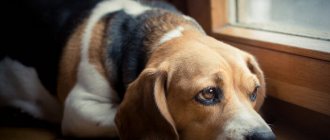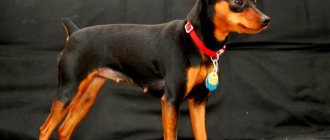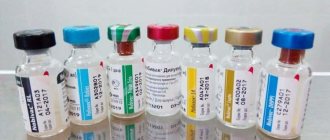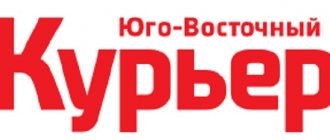Vaccination of puppies is a mandatory procedure for all breeds; as a rule, it is carried out by the breeders themselves if you buy a purebred puppy. If you have adopted a non-pedigreed dog, vaccination is something you should think about yourself and first of all.
| Vaccination of puppies | 1000 rub. |
What vaccinations should be given, their quantity, cost, as well as why all this is needed, you will learn from our veterinary note.
Puppy vaccination scheme.
In short, this is what the main stages of vaccination look like; each of them will be discussed in more detail below.
- First we give a tablet or suspension against parasites.
- When 10 days have passed after treatment, give the first vaccination.
- After 21 days have passed from the first, the second vaccination is given.
- Subsequent vaccinations are done every year - once a year.
- Anti-parasite products, suspensions, tablets or drops - you buy them at a pet store and give them yourself based on the instructions for the drug and the weight of your puppy. This treatment is necessary so that your pet’s body is fully prepared for vaccination.
- The puppy's first vaccination is done at eight weeks of age. While the puppy receives mother’s milk, it protects it from the effects of viruses and infections, but when the puppy switches from milk to regular food or feed, this protection, unfortunately, ends and vaccinations are called upon to replace it and help the body of a very small dog.
- The first vaccination is followed by a second, this is mandatory and it doesn’t matter whether you are vaccinated with “Eurican” or “Nobivak”. This vaccination is given twenty-one days after the first one was given. The vaccination schedule for puppies must be followed if you want your puppy to delight you with its good health.
- Well, the third vaccination is done when the puppy is one year old. After a year, dogs switch to another, “adult” scheme, which is much simpler. Vaccinations are done annually, if you want to know about this, follow this link.
How much does the coronavirus vaccine cost and where can I buy it?
The American company Moderna offers those who want to protect themselves from infection with the serum they developed for 2-2.2 thousand rubles per dose, that is, for 4-4.4 thousand rubles. for a course of vaccination. In Italy, Irbm employees offer a product whose cost will not exceed 200-300 rubles. At the same time, the price of drugs for coronavirus in pharmacies (favipiravir, areprivir) is 11-16 thousand rubles, so preventing the disease is beneficial both for health and for the wallet.
An analogue of the vaccine from Russia, as the head of the FAS I. Artemyev told the media, will cost about 1 thousand rubles. At the same time, it is necessary to consider the cost of the coronavirus vaccine from the point of view of exports, since the funds are planned to be sent to other countries .
For Russians, the price of the coronavirus vaccine promises to be free: Sputnik V will be financed by the Compulsory Health Insurance Fund, Gam-Covid-Vac by the federal budget. Along with receiving vaccinations at a local clinic for free, the Ministry of Health leaves the opportunity to perform immunization in a private clinic.
Vaccination is voluntary , but for mass immunity, at which the number of infected people begins to sharply decrease, at least 70% of those vaccinated are necessary. Vaccination, provided there are no contraindications, is a concern for your health and the well-being of others.
“Private ambulance No. 1” in Rostov-on-Don offers diagnostics for coronavirus (using PCR, ELISA, ICA methods) and further treatment. For questions regarding prevention, you can contact the number: 8.
What to do after vaccination?
After the puppy has been vaccinated, the immune protection does not begin to work immediately. Immune response is the body’s reaction to the vaccine; after the vaccine has been administered, protection begins to take effect within twenty days. Therefore, after vaccination, the puppy can go for walks in two to ten days.
Of course, the immune response to the vaccine does not occur immediately, so for the first month after vaccination you need to avoid contact between the puppy and other dogs, because there is still little risk of getting sick. Also, for the first ten days after vaccinations, it is better not to bathe the puppy and avoid increased physical activity and drafts, long trips and other stress on his body.
There is a rumor that different breeds of dogs are vaccinated with different vaccinations. In fact, these are just rumors. German Shepherd, Labrador, Husky, Yorkie and Chihuahua puppies are vaccinated with the same vaccines, because infectious diseases are also common in these and other breeds. Unfortunately, the disease does not spare either purebreds or mixed breeds, so do not be frivolous when it comes to vaccination, especially if you have a purebred puppy.
Vaccinating puppies at home or in a clinic?
Traditionally, the first vaccination is best done at home. Not only veterinarians will tell you this, but anyone will confirm this. This approach and caution are associated with the risks of “catching” the infection directly in the clinic.
Think about it, we ourselves don’t like to just visit any medical institutions, as they say, “they sneeze”, “cough”, and there is truth in this, and so does a puppy, just sit in the general queue and you can get sick, because some dog infections are transmitted by air. Moreover, the price of vaccination at home is not high, and in comparison with the risk that your puppy will avoid - even more so.
It is best to start taking your dog to the clinic for vaccinations after a year. It is safer to do the first vaccinations when a doctor comes to your home. When a puppy becomes an adult dog, the body is not so susceptible to infections, plus the protection received by the body during the first vaccinations is in effect. With an adult dog, you can safely visit the clinic and not be afraid of anything.
After vaccination
Just like vaccinating a dog, observing the necessary preparation, post-vaccination control is important. The fact is that a dog will not develop strong immunity immediately, but after 2 weeks, so during this period it will not yet be protected. A two-week quarantine is maintained, during which you cannot:
- bathe the dog;
- supercool;
- load with loads;
- allow contact with other pets that go outside.
During the first week, you can measure your dog’s temperature. If it increases by 0.5 degrees from the normal norm, you must inform your veterinarian. If there is such a possibility, then it is better not to walk the dog during quarantine, or to take it out for a short period without letting it off the leash. Separately about Ciprovet drops for dogs.
Today, many clinics provide services at home, so it is not necessary to take the dog to the veterinary hospital - the doctor will examine the pet and give the necessary vaccination. The only thing you need to follow in this case is documentation of vaccination.
Currently reading:
- Is it worth it or not to include natural food in your dog’s diet?
- Recommendations for obedience of a dog if it growls
- Ways to manage parvovirus infection in dogs
- Seven Signs and Remedies for Getting Rid of Fleas in Dogs
How much does puppy vaccination cost?
Many dog owners neglect vaccination, believing that it is an expensive procedure and only necessary for purebred and “elite” dogs. This is a big mistake that can cost your pet’s health, because treatment will always be more expensive than preventive vaccinations, not taking into account your time and inconvenience for the dog.
How much it costs to vaccinate a puppy depends on the vaccine that will be used. There are imported drugs, and there are domestic ones, the cost and quality of which vary. Vaccination with a good vaccine is not expensive in our clinic; we can also issue a veterinary passport if your pet does not have one and arrange for a doctor to come to your home.
What vaccinations are there for dogs?
Plague.
Veterinarians advise using domestic vaccines. They have fewer side effects and do not cause disease. These include: Vakchum, 668-KF, EPM.
Rabies.
A dangerous disease transmitted to humans. The source of rabies is the saliva of sick animals. Human infection occurs through bites, scratching or salivation of damaged skin and mucous membranes, so it is not necessary for the animal to bite. Even a friendly pet with excessive salivation is dangerous. A cultural rabies phenol vaccine is made against this disease. There is a vaccination schedule that must be followed.
Enteritis and viral hepatitis.
They use Parvovac.
Foreign manufacturers have multicomponent vaccines . Puppies are additionally vaccinated against diseases: parainfluenza, parvovirus enteritis, distemper, adenovirus, leptospirosis. Young animals are revaccinated.
In case of illness, serums are used. They differ from vaccines in that they contain antibodies, meaning they are used to cure a disease when the animal is already sick. They are not suitable for preventive purposes.
Vaccination of puppies in Rostov-on-Don.
Vaccinations done on time and correctly, according to schedule and scheme, are the basis on which the dog’s health in the future depends. Vaccination, proper feeding, a sufficient amount of vitamins and physical activity are what help raise a healthy and strong dog, and the owners save significant money on treatment and visits to the veterinarian.
At our clinic, you can call a veterinarian for vaccination at your home or come in person. We issue puppies with international passports with the necessary marks. In addition, we offer vaccines from different manufacturers, including imported ones. If the time has come for your puppy to get vaccinated, contact us, we will definitely help you.
Vaccination (vaccination) for puppies and adult dogs is necessary to protect them from many dangerous viral infections. In 95% of cases, a vaccinated animal does not get sick upon contact with a virus carrier, like its unvaccinated counterpart, who may even die from the disease.
Dog vaccination
Vaccination of dogs is used to prevent the main, most common viral diseases. The number of diseases for which effective vaccines exist is small. There are currently no vaccinations against all dog diseases at once.
Most instructions for modern dog vaccines say that puppies should be vaccinated after they reach two months of age. Exception:
The Nobivac company produces the Nobivac puppy DP vaccine, which can be used to vaccinate puppies against canine distemper and viral enteritis from four weeks of age (1 month).
The use of this vaccine is relevant for artificial puppies (who did not receive mother's milk (colostrum) in the first days of life and do not have colostral immunity), as well as in cases of high probability of infection with plague and parvovirus enteritis (the question of the timing and schedule of vaccination of artificial puppies at present is debatable. Perhaps in the near future it will be officially resolved and an approved scheme will appear, different from the one currently used). Dog vaccination preparations can have different compositions and provide immunity from one or more diseases. For the first time, a dog is vaccinated with a complex vaccine (regardless of age) twice (except for Nobivak pappy), i.e. the animal is given two doses of the vaccine with an interval of 2 to 4 weeks (see instructions for the specific vaccine). All vaccines are administered subcutaneously. Any puppy MUST be vaccinated, regardless of origin, breed and lifestyle (completely at home, regular walking or kennel).
At the same time, it is important to maintain an adaptation quarantine immediately after purchasing a puppy (two weeks to get used to new conditions) and at the same time prepare for vaccination (deworming, flea treatment).
Vaccination of a dog should be carried out only by a veterinary specialist and accompanied by paperwork, most often a veterinary passport or certificate. After a vaccination done according to all the rules, the amount of antibodies in the blood is at a level sufficient for effective immune protection on average from several months (for respiratory diseases) to three or more years (parvovirus, rabies). After this period, in order to maintain the antibody titer and preserve the strength of the immune system, revaccination should be carried out (it is recommended to carry it out once a calendar year). Revaccination
is a one-time
vaccination of a previously vaccinated dog. It is carried out only on healthy animals (if at the time of revaccination the dog is sick, is in estrus, pregnant, has moved, experienced significant physical activity, participated in an exhibition, was on a hunt, etc., it is not advisable to revaccinate it, you should wait for recovery/adaptation to new conditions/ cessation of estrus, etc.). All these restrictions apply primarily to cases of using so-called “live” vaccines. It is important to adhere to the timing of revaccination. It should be done before the vaccination expires and at least two weeks before taking the pet out into the wild (dacha, village, training ground). It should be understood that in the city (on the street, at the entrance, or even without leaving the apartment) the risk of catching an infection is noticeably higher than in a field or forest, since in populated areas there are significantly more dogs, both carriers of viruses and clearly sick. Therefore, everyone needs to be vaccinated and revaccinated. Revaccination is also important from a formal point of view (the presence of valid marks in the veterinary passport). Important note
: having a properly issued veterinary passport with valid vaccination dates is extremely important for those who like to take part in dog shows, go hunting, or simply move legally with their pet within the Russian Federation or abroad. According to the veterinary legislation of the Russian Federation, it is required to vaccinate dogs (and cats!) against rabies, because this disease is common to humans and animals, and can be transmitted by a bite or contact (salination of a wound and microcracks in the skin) from a sick dog to other mammals (people, dogs, cats, ferrets, etc.). In addition, a dog can become infected with rabies from wild predators (foxes, raccoons, badgers, wolves, etc.). Most manufacturers require that dogs be vaccinated against rabies once, after the puppy reaches the age of three months (although according to the veterinary legislation of the Russian Federation - from two months). Vaccination against other purely canine diseases is a voluntary decision of the owner. Nowadays, complex vaccines of foreign production (Holland, France, USA), as well as domestic biological products are mainly used. They may include components against rabies, as well as distemper, parvovirus enteritis, infectious hepatitis, parainfluenza and leptospirosis. Vaccination against other diseases is carried out much less frequently.
Regarding various preparations for vaccinating dogs .
The Nobivac company produces vaccines:
Nobivac DHPPi
- against canine distemper, parvovirus enteritis, parainfluenza, infectious hepatitis (adenovirosis).
Nobivac rabies
- against rabies. Administered alone or in combination with Nobivac DHPPi.
Nobivac Lepto
– against leptospirosis. It is most often administered together with Nobivac DHPPi and Nobivac rabies.
Nobivac RL
– against rabies and leptospirosis.
It is most often administered together with Nobivac DHPPi. Nobivac puppy DP
– used for early vaccination of puppies against distemper and enteritis. Vaccination at four or six weeks with the Nobivac puppy vaccine does not replace the need to use Nobivac DHPPi at eight weeks and Nobivac DHPPi + Nobivac rabies at twelve weeks.
The French company Merial produces the Eurican vaccine. The composition of this vaccine is similar to Nobivac vaccines:
Eurikan DHPPI2-LR
- against canine distemper, infectious hepatitis, parvovirosis, parainfluenza-2, leptospirosis and rabies.
Eurikan DHPPI2-L
- against canine distemper, infectious hepatitis, parvovirosis, parainfluenza-2, leptospirosis. Does not contain anti-rabies component. Used for primary vaccination of puppies under 3 months of age.
Rabisin is produced separately
, containing an anti-rabies component.
The American company Pfizer produces Duramun
(Pfizer Duramun Max 5-CvK/4L for dogs) and
Vanguard
(Pfizer Vanguard 7/L (Vanguard) vaccine for dogs and Pfizer Vanguard 5/L (Vanguard) vaccine for dogs).
However, they are not very common in the Saratov region and are quite difficult to purchase (pre-order required). In addition, the listed vaccines do not contain an anti-rabies component. Vaccination against rabies is carried out separately ( Pfizer
Defensor 3 vaccine).
Of the domestic complex vaccines, Biovac
, in various versions (DPAL), as well as
the Multikan-6
and
Multikan-8
.
These biological products intended for vaccination of dogs do not contain an anti-rabies component (except for Multikan-8). A domestic rabies vaccine is also produced separately for use only in Rabix .
Rabikan
– domestic rabies vaccine (strain “Shchelkovo-51”). It is used mainly by the structures of the state veterinary service.
For greater clarity, let’s look at the example of vaccinating a puppy with the imported Nobivac vaccine in the form of a table.
| date | Puppy age | Vaccination stage | A drug | Note |
| May 1, 2015 | 1.5 months | Purchasing a puppy | Antihelminths | 2 weeks for adaptation and deworming |
| May 15 -22, 2015 | 2 months (8-9 weeks) | Primary vaccination | Nobivac DHPPi | A veterinary passport is created, in which notes on primary vaccination are entered. |
| June 8-15, 2015 | 3 months(12-13 weeks) | Repeated vaccination | Nobivac DHPPi+ Nobivac rabies (or Nobivac RL) | Vaccination records, including against rabies, are included in the veterinary passport. |
| June 15, 2016 | 1 year 3 months | Revaccination | Nobivac DHPPi+ Nobivac rabies (or Nobivac RL) | The veterinary passport contains notes on revaccination, including against rabies. |
| June 15, 2017 | 2 year 3 months | Revaccination | Nobivac DHPPi+ Nobivac rabies (or Nobivac RL) | The veterinary passport contains notes on revaccination, including against rabies. |
In the future, revaccination is carried out once a year until the end of the animal’s life.
Remark.
This table is a very conventional example, made for a general idea of the procedure. Depending on the age of the puppy, type of vaccine, force majeure circumstances, etc. The vaccination schedule may vary.
Veterinarian, Ph.D.
Kazakov Artem Arkadyevich Veterinarian Sergeevna Semirotova
ed. 07.2020.
At what age are puppies vaccinated?
Puppies, regardless of breed, can be vaccinated from 1.5 months of age. Many veterinarians use the 8-12 week schedule and this is more common. Those. Vaccination takes place in two stages. First injection at 8 weeks, second injection at 12 weeks. Subsequent vaccination takes place once a year
It takes a little longer to develop stable immunity, about 6 weeks from the moment of the first injection. Therefore, during this period it is better to protect the puppy from contact with the external environment to avoid infection. Many puppy owners believe that the animal immediately becomes protected after the first vaccination and do not comply with the quarantine regime, putting the animal at risk.
Preparing for puppy vaccination
A puppy, like an adult dog, needs to be prepared. First of all, treat for external and internal parasites. If you cannot carry out such a procedure yourself, it is better to go to a veterinary clinic or call a veterinarian at home. It is recommended that animals prone to allergic reactions be given antihistamines three days before vaccination.
It is worth considering the general condition of the animal. Because Sick, weakened, emaciated dogs, as well as pregnant bitches, are not allowed to be vaccinated.
Contraindications for vaccination
Most formulations for passive immunization, like the Russian Covid vaccine, are contraindicated for:
- feeling unwell;
- composition intolerance;
- pregnancy and lactation;
- body temperature above 37 degrees;
- tendency to severe allergic reactions.
Since the effect of anti-coronavirus vaccinations has not yet been fully , people with cancer, HIV, syphilis and hepatitis, those with a recent cardiovascular accident, and those who are preparing to conceive a child are advised to refuse passive immunization. It is also not indicated for those who have already suffered from Covid-19.
After administration, side effects may appear that do not cause much concern and go away on their own:
- general weakness;
- temperature increase;
- soreness at the injection site.
Little information is provided on the combination of the composition for the prevention of Covid with other vaccinations. Doctors say that vaccination against influenza is a good solution, because if you become infected with both infections, the risk of which is high in cold weather, the disease will be severe and provoke dangerous complications .
